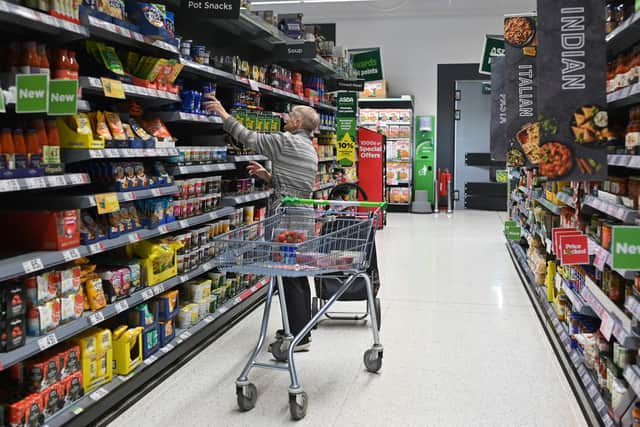Asda and Morrisons lose market share over Christmas as Aldi and Lidl's popularity increases
Leeds-based Asda remains the country’s third largest supermarket chain behind Tesco and Sainsbury’s.
But new figures released by leading marketing data and analytics company Kantar covering the 12 weeks up to January 22 show that while Sainsbury’s and Tesco gained market share over the period, Asda fell back.
Advertisement
Hide AdAdvertisement
Hide AdSainsbury’s increased sales by 8.1 per cent to take 15.7 per cent of the market, 0.3 percentage points higher than last year, while the UK’s largest retailer Tesco grew by 6.3 per cent and now has a share of 27.6 per cent, up from 27.5 per cent. Asda’s share is at 13.7 per cent – down from 14.2 per cent, despite sales rising by 2.1 per cent compared to a year ago.


Bradford-headquartered Morrisons had been in the top four most popular supermarkets for 18 years before being overtaken by Aldi in September 2022.
Sales at Morrisons rose by 2.8 per cent, with the Bradford-based grocer now holding an 8.8 per cent share – down from 9.1 per cent at the same point last year. In contrast, Aldi solidified its position in the ‘Big Four’ with its market share increasing from 9.2 per cent to 9.3 per cent, with sales rising 7.2 per cent.
Morrisons also faces increasing competition from sixth-placed supermarket Lidl, which achieved the best growth of all chains.
Advertisement
Hide AdAdvertisement
Hide AdLidl was the fastest growing grocer in Britain for the fifth month in row and the only retailer to see double-digit growth in the latest 12 weeks. Spending at the discounter was up by 11.9 per cent, bringing its share of the market to 7.5 per cent – up from a previous 7.1 per cent.
Across the whole market, grocery price inflation fell very slightly to 6.8 per cent in January, down from 6.9 per cent in the previous 12-week period.
Fraser McKevitt, head of retail and consumer insight at Kantar, explains: “All eyes are back on inflation again, after the Consumer Prices Index’s (CPI) unexpected jump earlier in the month.
"There’s been a lot of speculation about the impact the Red Sea shipping crisis might have on the cost of goods, but the story in the grocery aisles this January is more about the battle between the supermarkets to offer best value, rather than geopolitics.
Advertisement
Hide AdAdvertisement
Hide Ad"Retailers have taken their foot off the promotions gas slightly as we’ve come into the new year, and that’s meant inflation hasn’t fallen as quickly.
“Items bought on offer accounted for 27 per cent of all grocery spending in January versus 32 per cent last month.
"Christmas is always a bumper period for deals and the grocers pulled the price lever especially hard in December, as they sought to get shoppers through their doors. However, there’s still plenty of opportunities for consumers to make savings. The overall trend in offers is up versus this time last year, and nearly £500 million more was spent on offers this January than in the same month in 2023.”
With inflation remaining stubbornly high, Kantar said that Britons are changing their behaviour to better manage their costs.Mr McKevitt said: “There’s evidence to suggest that people are opting for more homemade meals to keep budgets in line. Looking ahead to February, it will be interesting to see how this plays out on Valentine’s Day, and if couples will opt for more low-key celebrations. This was certainly the case in 2023, when we saw a massive £43 million spent on supermarket meal deals costing £10 or more in the week before the special day.”
Comment Guidelines
National World encourages reader discussion on our stories. User feedback, insights and back-and-forth exchanges add a rich layer of context to reporting. Please review our Community Guidelines before commenting.